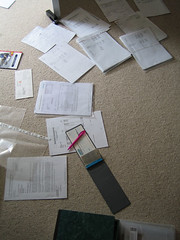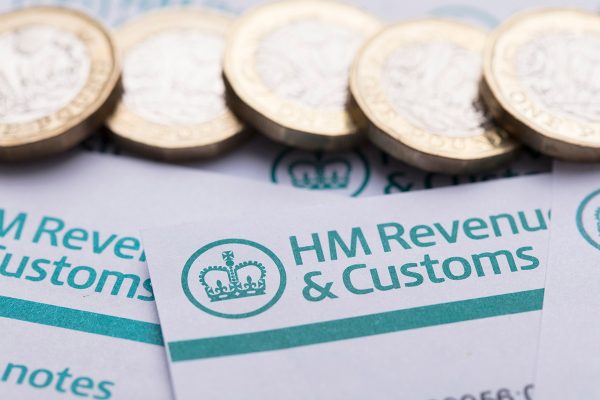Having just completed and filed personal tax returns at the end of January, many people will be breathing a sigh of relief that the task is done for another year. Typically it’s not exactly unheard of for people to ignore their accounts until the 11th hour and then complete an entire years books in the last few days before their tax return is due. If that’s you then the best advice will be to review your accounts procedures and start keeping your records up to date on a regular basis.
It’s unarguable that records kept daily or weekly are more likely to be accurate than financial records completed months later. HMRC suspect that companies are underpaying tax due to poor record keeping and aim to review the accounts of up to 50,000 of the worst cases each year. The checks will be known as Business Records Checks (BRCs) (Link opens in .pdf), with penalties imposed for significant record keeping failures.
The scale of the problem for HMRC is pretty significant, their random enquiry programme has shown that inadequate business records is a problem in around 40% of the country’s five million SMEs. As they will be targeting businesses whose “risk assessment” suggests they are likely to have inadequate business records, HMRC expect the initial incidence of poor record keeping in the BRC population to be around 60% and for this to rise as the BRCs progress.
The BRCs are scheduled to start in September this year and unlike a full tax inspection they will typically be pre-return checks, taking half a day on average to complete. HMRC estimate that £600m of extra revenue will be collected over 4 years.
If you’re not keeping your business records up to date on a regular basis this might be the year to start doing so. Having records that are up to date and being able to demonstrate your record keeping processes is likely to stand you in good stead, should you be subjected to a BRC.









13 Responses
Day Light Robbery…
I think I prefer the days when they would come to the village and take our sheep.
Why do we put up with it.
So keeping every receipt/transaction then dumping it on my weary accountant once a year is not good enough any more?
I don’t particularly want to pay my accountant every month to keep my records up to date. She herself said mine are nice and simple (98% exportable online etc) and it would not be cost effective to do every month.
However, most online retailers I know are far too big not to have their accounts done every month so does this mean they are going to pick on the little people?
I suspect that they will pick on people whose returns are suspiciously low or late.
I hear tell ,you cant do more than 70 miles an hour on the motorway,either
With all the news that HMRC can’t keep accurate records of people paying the right “paye taxes”, what makes them think that this will do any better. I thought they were cutting the public services not exspanding them. The thing that makes me laught is that this was dreamed up by politicians checking up on us. But look at what the politicians get up to, there the biggest cheats that ever walked the earth. They even make claims for porn films in there expenses.
All funds coming into the business go direct to our business account and as far as possible all business related purchases are made on the same account. Now although it will never be a complete record of all business transactions it is a good indicator of the state of our accounts.
If you haven’t got a separate business account – then hold onto your hat!
Just seen the PDF – Total Cost (PV) £10.2m
I thought the government was trying to save money, Not Wasting it!
The usual term for dumping all the invoices etc on the Accountant once a year is “Shoe Box Accounting”. It has kept Accountants rich for generations. They have a couple of low paid clerks who spend days writing it all up(or today entering it into the computer) and then at the end the Chief Clerk or Junior Accountant does the maths and you the client gets charged top price as if the Senior Accountant has done all the work. Also for those who are VAT registered and having to submit quarterly figures Shoe Box Accounting” is just not possible. There needs to be some discipline in keeping the Accounts but there are many systems available even down to the old fashioned manual systems that can keep everything up to date. ALL Invoices and back-up documents should be kept. After all if the HMRC or even your Accountant asks about a transaction from April or May(the start of the Tax Year)-working on the basis that your year end is 31st March(probably the most popular date along with the 31st December) for Small Businesses to pick as their year end how are you going to remember the details. When I was an Accountant in Industry(back in the 1970’s) you could guarantee that any problem was always at the start of the preceeding Tax-year and you had only the faintest of memory of what was happening because a great deal of water had run under the bridge since then. Every serious Business should keep accurate accounts and it is not that difficult just time consuming and of course its not glamerous.